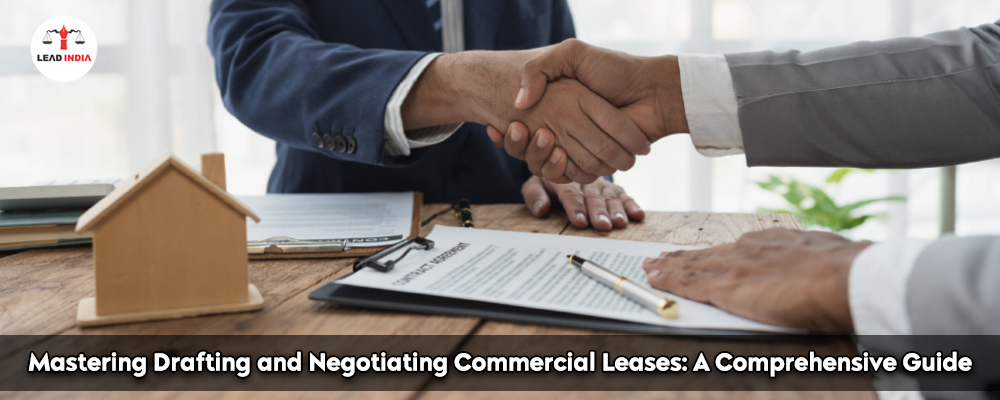Navigating the complex world of commercial leases can be difficult for both landlords and tenants. However, with a solid understanding of the key components and best practices, you can master the craft of drafting and negotiating commercial leases. In this comprehensive guide, we’ll look at the key components of commercial leases, common negotiation strategies, and best practices for landlords and tenants.
Understanding the basics
A commercial lease is a legally binding contract between a landlord and a tenant that specifies the terms and conditions of the rental agreement. The lease typically specifies the lease term, rent amount, property use, and both parties’ rights and responsibilities.
Need A Legal Advice
The internet is not a lawyer and neither are you. Talk to a real lawyer about your legal issue

Common Clauses and Terms
Commercial leases frequently include several clauses and terms that are specific to the commercial real estate industry. Some of the most common clauses are:
- Rent: The amount paid by the tenant to the landlord for the use of the property.
- Term: The length of the lease, usually expressed in months or years.
- Rent Increases: The process by which rent can be increased during the term of the lease.
- Renewal Options: The tenant’s ability to extend the lease beyond its initial term.
- The Use Clause specifies how the tenant may use the property.
- Maintenance and Repairs: The landlord and tenant are responsible for maintaining and repairing the property.
- Insurance requirements apply to both landlords and tenants.
- Subleasing: The tenant’s ability to sublet the property to a third party.
- Assignment: The tenant’s ability to transfer the lease to a third party.
Key Negotiation Strategies
Negotiating a commercial lease is a complicated process that requires both parties to be strategic and adaptable. Some key negotiation strategies are:
- Understand your bargaining power: To determine your bargaining power, consider the market conditions, property location, and the financial situation of the tenant or landlord.
- Be prepared: Investigate the market, collect information on comparable properties, and gain a clear understanding of your requirements and objectives.
- Focus on the Big Picture: Negotiate terms that will benefit both parties in the long run, rather than focusing solely on short-term benefits.
- Be flexible: Be willing to compromise and consider other options that may benefit both parties.
- Seek legal advice. Consult with an attorney who specializes in commercial real estate law to ensure that your lease is legally sound and protects your interests.
Best practices for drafting and negotiating commercial leases
To ensure a successful commercial lease, both landlords and tenants should adhere to best practices when drafting and negotiating leases. Some of the best practices are:
- Be clear and concise. Use plain language and avoid legal jargon to ensure that both parties can easily understand the lease’s terms.
- Be Specific: Clearly define the rights and responsibilities of both parties and avoid using ambiguous language.
- Be Fair: Make sure that the lease terms are fair and reasonable for both parties.
- Be flexible: Be willing to compromise and consider other options that may benefit both parties.
- Be Transparent: Disclose all relevant information, such as environmental hazards or zoning restrictions, to ensure that both parties understand the risks and benefits of the lease.
- Seek legal advice. Consult a commercial real estate attorney to ensure that your lease is legal and protects your interests.
Common Pitfalls and Mistakes to Avoid
To avoid common pitfalls and mistakes, both landlords and tenants must be aware of the following:
- Failing to Understand the Market: Negotiating a lease without understanding the current market conditions can result in unfavorable terms.
- Neglecting Due Diligence: Failure to perform proper due diligence can result in unanticipated consequences, such as environmental hazards or zoning restrictions.
- Ignoring the Big Picture: Concentrating solely on short-term gains can result in long-term issues and a less desirable lease.
- Being unwilling to compromise can result in a less favorable lease or a failed negotiation.
- Failing to Seek Legal Advice: Failure to consult with a commercial real estate attorney can result in a lease that is legally invalid or does not protect your interests.
For drafting and negotiating commercial leases, it is advisable to contact a legal professional. Lead India offers various legal services, including free legal advice and online information. You can talk to a lawyer and ask a legal question on various matters, including divorce, through our platform.




